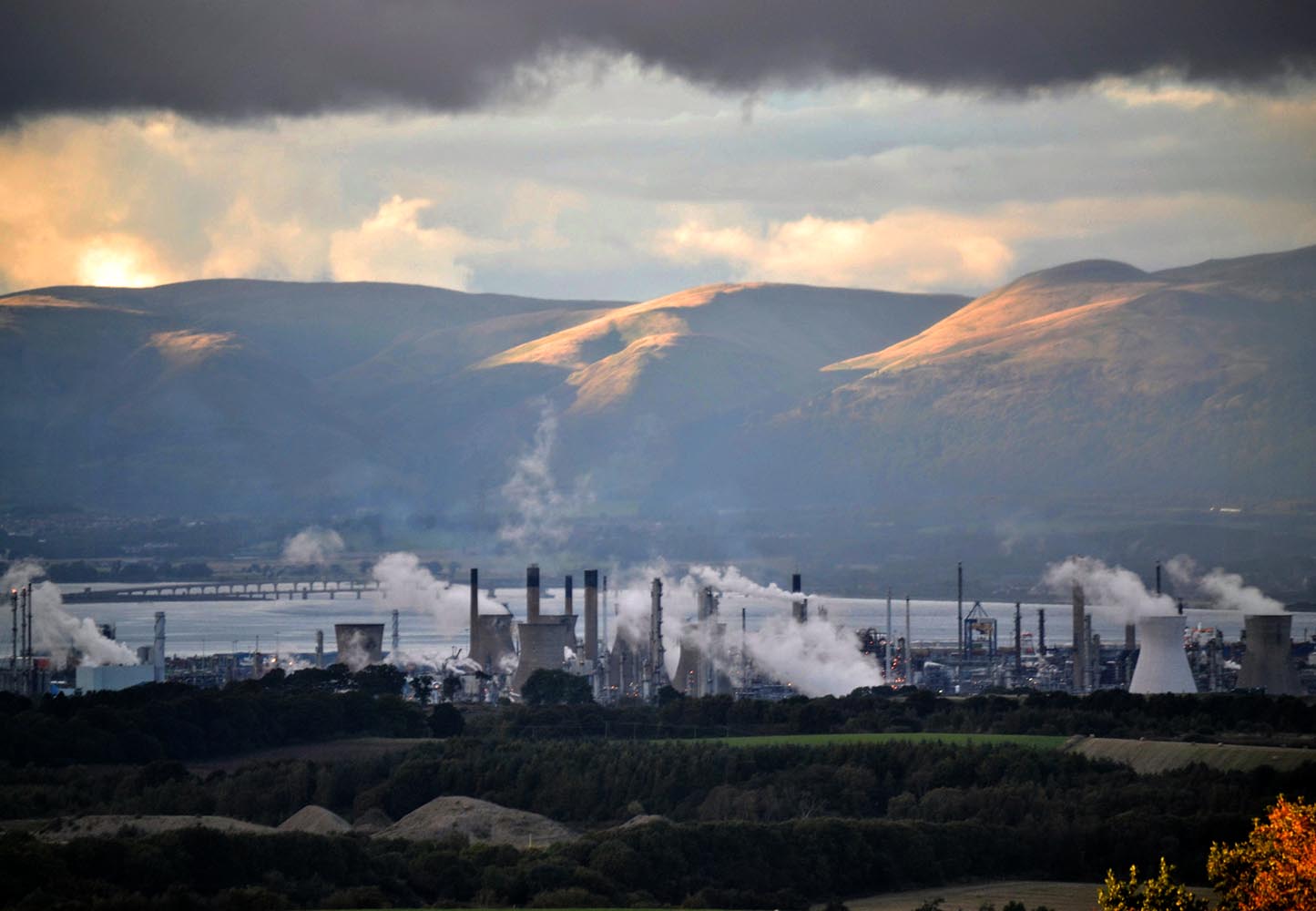
Grangemouth Refinery closure threatens jobs, shifts focus
The Grangemouth Refinery, Scotland’s only operating crude oil refinery and one of the six remaining in the UK, is preparing to shut down operations by 2025. This impending closure puts hundreds of jobs at risk and marks a significant shift in the region’s industrial landscape. The refinery employs 550 people, excluding contractors, and is responsible for roughly 4% of Scotland’s gross domestic product (GDP).
With a capacity of approximately 150,000 barrels per day (bpd), the Grangemouth Refinery accounts for about 13% of the UK’s total oil-processing capacity.
The closure of the refinery, which is located outside of Edinburgh, signifies a major shift from traditional energy sources to newer forms of energy. Ewan Gibbs, a lecturer at the University of Glasgow, noted, “The closure of Grangemouth marks the end of an era in Scotland’s energy history, transitioning from coal and shale to petroleum, and now to a future without local refining capacity.”
The Grangemouth Refinery was originally built by Scottish Oils Ltd, which was a part of the Anglo-Persian Oil Company, now known as bp. The refinery began its operations in 1924. It was constructed to process crude oil, which was largely imported from the Middle East, and it played a significant role in the development of Scotland’s industrial landscape.
In 2005, the refinery’s ownership changed hands when bp sold its Innovene subsidiary, which included the Grangemouth site, to INEOS, a global manufacturer of petrochemicals, specialty chemicals, and oil products. INEOS is a privately-owned UK-based company founded by Sir Jim Ratcliffe.
For INEOS, acquiring the Grangemouth Refinery was an opportunity to expand its portfolio in the petrochemical sector. The acquisition allowed INEOS to integrate the refinery’s operations with its existing petrochemical plants, creating synergies and efficiencies.
Petroineos Refining, a joint venture between PetroChina and INEOS, was formed in 2011 as a partnership between these two entities. As part of this joint venture, INEOS contributed its refining assets, including the Grangemouth Refinery and the Lavéra Refinery in France.
Petroineos announced that the Grangemouth site would transition into an import and distribution hub. The decision follows discussions with the Scottish Government and unions.
Scottish Greens MSP Gillian Mackay expressed concern for the workers, highlighting the need for urgent action to address their plight. Similarly, Tory MSP Murdo Fraser pointed out the significant impact on the Scottish economy and the industrial sector.
Unite the union is actively engaging with Petroineos to explore all options for preserving jobs. Sharon Graham, the union’s general secretary, emphasised the importance of considering the broader implications for energy supply and security.
Franck Demay, CEO of Petroineos Refining, reassured that it’s business as usual at the refinery until the proposed closure date. He explained, “As the energy landscape evolves, we must adapt our business model. This transition is a necessary response to the declining demand for the fuels we produce.”
Petroineos is also exploring low-carbon opportunities for the Grangemouth site, including the potential development of a bio-refinery facility. The company is collaborating with various stakeholders, including the Scottish and UK governments, to determine the feasibility of this project.
Former First Minister of Scotland, Alex Salmond, expressed frustration over the lack of attention to this issue at the Prime Minister’s Questions, urging immediate action to secure Scotland’s industrial and energy base.












